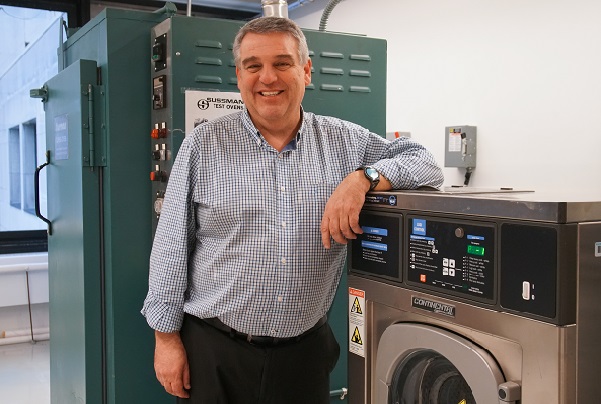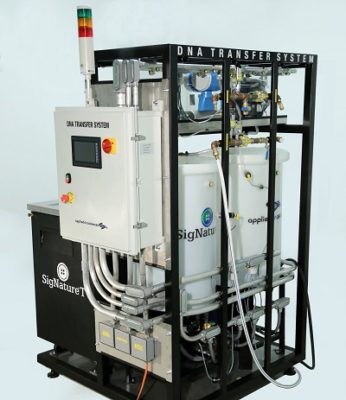
Sean Cormier ’92, associate professor of Textile Development and Marketing, studied the effect of harsh denim washes on cotton that has been tagged with a DNA marker. The results were published in the September/October issue of AATCC Review, the magazine of the American Association of Textile Chemists and Colorists.
Because of the complexities of cotton sourcing, textile and apparel companies often don’t know where their cotton was grown. This becomes an issue for companies that need to prove that they use organic cotton—or that they don’t use cotton from Uzbekistan, where forced and child labor are common.
An innovative technology called CertainT, created by Applied DNA Sciences of Stony Brook, New York, can solve this problem. The company creates a unique DNA signature, about 200 base pairs long, and sprays this DNA onto cotton at the ginning stage. Applied DNA Sciences tests for this signature in the final product, to ensure that inferior cotton wasn’t substituted at any point. Already, the company has tagged 200 million pounds of cotton, and linens manufacturer Himatsingka uses this technology with sheets sold at Costco and Bed Bath and Beyond.

“CertainT tells the customer that the product they’re buying is the product that’s advertised,” says John Shearman, executive director of marketing for Applied DNA Sciences.
Before this DNA tagging technology could be applied to denim on a large scale, Applied DNA Sciences needed to know that the DNA tag would not be stripped off when the denim went through harsh acid and stone washes. In the quality assurance course Cormier teaches in the textile testing lab at FIT, students sprayed on the DNA and performed these washes. Next, Cormier sent the denim back to Applied DNA Sciences for testing. Fortunately, the marker had remained.
“Denim has the most abrasive treatments out there,” Cormier says. “If we could do this with denim, we could do it with any other product.”
